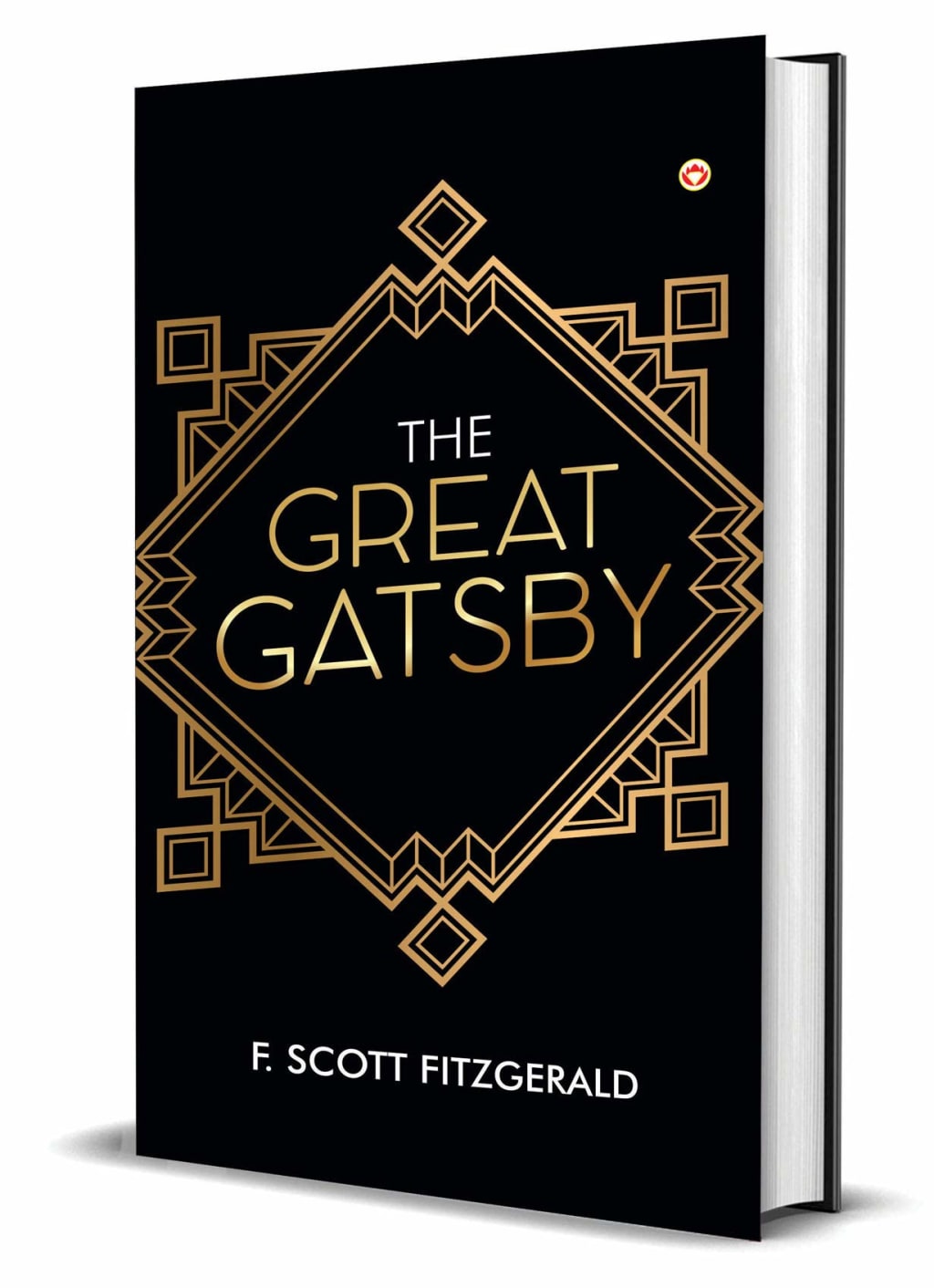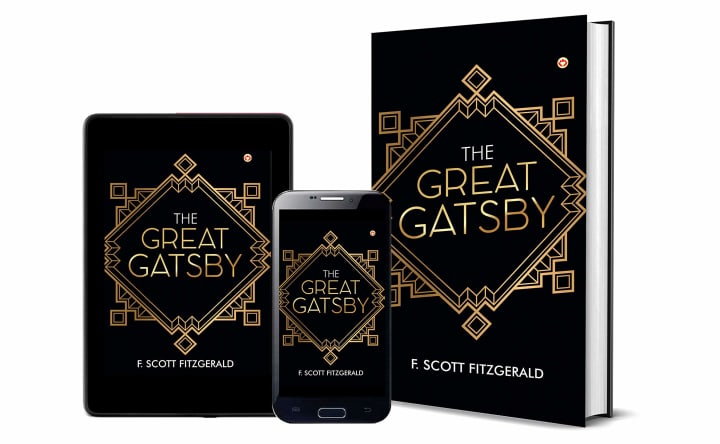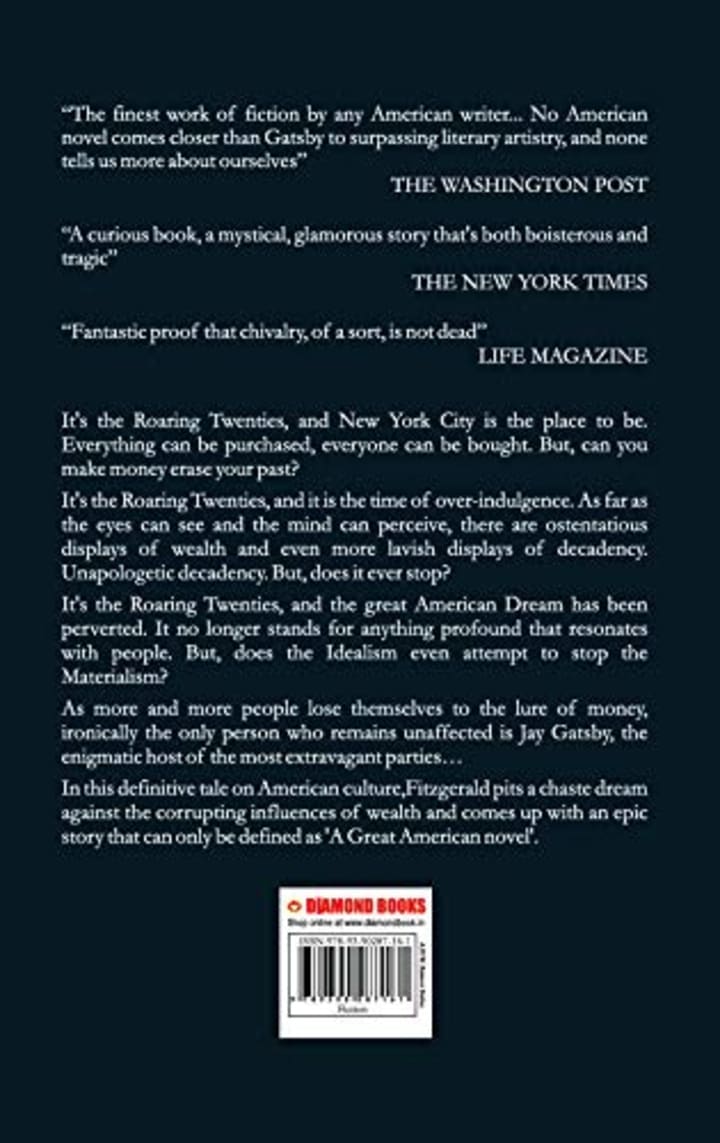The Great Gatsby
written by F. Scott Fitzgerald

"The Great Gatsby" is a novel written by F. Scott Fitzgerald, published in 1925.
The story is set in the 1920s, a time of social and cultural upheaval in America. It explores the themes of love, wealth, and the corrupting influence of the American Dream. The novel is narrated by Nick Carraway, a young man from the Midwest who moves to New York City to work in the bond business. He becomes a neighbor of the wealthy Jay Gatsby, and through their friendship, he becomes embroiled in the drama of Gatsby's life.
The novel's central character, Jay Gatsby, is a mysterious and wealthy man who throws extravagant parties at his mansion on Long Island. He is deeply in love with Daisy Buchanan, a woman he met before he became wealthy, but who is now married to Tom Buchanan, a former college classmate of Nick's who is also very wealthy. Gatsby is desperate to win Daisy back and uses his wealth to try and impress her.
The novel is set against the backdrop of the Roaring Twenties, a time of excess and indulgence, but also of social and cultural change. The characters in the novel are consumed by their desires for wealth and status, and they are willing to do almost anything to achieve their goals. The novel explores the themes of love, wealth, and the corrupting influence of the American Dream.
The character of Daisy represents the shallow and superficial nature of the wealthy elite in the 1920s. She is beautiful and charming, but also self-absorbed and careless. She is married to Tom, but she is deeply conflicted about her feelings for Gatsby. Ultimately, her indecision and her desire for material comfort lead her to stay with Tom, despite her feelings for Gatsby.
Tom Buchanan, on the other hand, represents the old money elite who are threatened by the nouveau riche like Gatsby. He is arrogant and condescending, and he sees Gatsby as a threat to his social status. He is also unfaithful to Daisy, having an affair with Myrtle Wilson, a working-class woman who is married to George Wilson, a mechanic who runs a gas station.
Gatsby's pursuit of Daisy and his obsession with wealth and status ultimately lead to his downfall. He becomes embroiled in a web of deceit and corruption, and his association with criminal activity catches up with him. He is ultimately betrayed by those he thought were his friends, and he is shot and killed by George Wilson, who believes Gatsby is responsible for Myrtle's death.
The novel's conclusion is a poignant commentary on the emptiness of the American Dream. Gatsby's tragic end shows that the pursuit of wealth and status can lead to corruption and ultimately to a meaningless existence. The characters in the novel are unable to find true happiness or fulfillment, and their pursuit of the American Dream only leads to their downfall.
Fitzgerald's writing style is lyrical and poetic, and his use of symbolism is particularly effective in conveying the novel's themes. The green light on the dock across the bay, the valley of ashes, and the eyes of Dr. T. J. Eckleburg are all powerful symbols that contribute to the novel's haunting atmosphere.

In conclusion, "The Great Gatsby" is a novel that explores the themes of love, wealth, and the corrupting influence of the American Dream. The characters are consumed by their desires for wealth and status, and their pursuit of these things ultimately leads to their downfall. The novel is a powerful commentary on the emptiness of the American Dream and a poignant reminder that true happiness and fulfillment cannot be found through material wealth or status.
Available Books in Amazon
Click here: https://amzn.to/3F0wHHX
It's the Roaring Twenties, and New York City is the place to be. Everything can be purchased, everyone can be bought. But, can you make money erase your past?
It's the Roaring Twenties, and it is the time of over-indulgence. As far as the eyes can see and the mind can perceive, there are ostentatious displays of wealth and even more lavish displays of decadency. Unapologetic decadency. But, does it ever stop?
It's the Roaring Twenties, and the great American Dream has been perverted. It no longer stands for anything profound that resonates with people. But, does the Idealism even attempt to stop the Materialism?
As more and more people lose themselves to the lure of money, ironically the only person who remains unaffected is Jay Gatsby, the enigmatic host of the most extravagant parties...
In this definitive tale on American culture, Fitzgerald pits a chaste dream against the corrupting influences of wealth and comes up with an epic story that can only be defined as 'A Great American novel'.

Click here: https://amzn.to/3F0wHHX
About the Creator
Putthaga Puthalvan
👉 I'm a Ghostwriting and Books Reviewer. I make freelancing, career and Books related content for Professionals. I've also had the chance to talk with entrepreneurs.






Comments
There are no comments for this story
Be the first to respond and start the conversation.